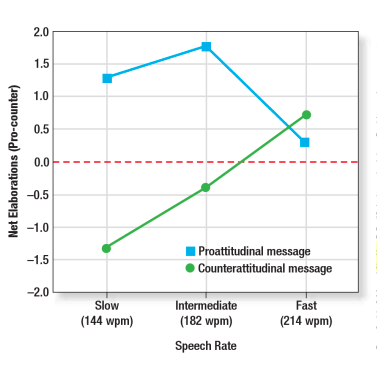If there was one piece of advice I got from teachers growing up, it was this: “Slow down! I can’t understand what you’re saying.”
As a result, I spent the bulk of my adolescence and early adult years making a conscious effort not to overwhelm my listeners with thousands of words per minute, no matter how jazzed up I was about whatever I was saying.
So I was intrigued by some scientific findings I came across while researching an article on ways to influence people.
Apparently, if you’re trying to persuade someone to see your point of view, it’s probably best to speak quickly. That’s because the person will not have time to really think critically about your arguments.
On the other hand, if your listeners already agree with what you’re saying, it’s best to speak slowly, so they do have time to parse your words and appreciate the strength of your arguments.
In the study, researchers had undergraduate students in the US - most of whom supported a lower drinking age - listen to a message about a recently passed law that raised the legal age for purchasing and consuming alcohol from 19 to 21. Then, some students heard a speech in favor of the new law, while others heard a speech opposing the law.

The speech was delivered at three different paces: slow (144 words per minute), moderate (182 words per minute), and fast (214 words per minute).
It turned out that when students heard the argument opposing the law, they were more likely to agree with the message the slower it was delivered. But when students heard the argument supporting the law, they were more likely to agree with the message the faster it was delivered.
Meanwhile, another study conducted in Canada found that men and women presenting mock-telemarketing messages were viewed as more credible the faster they spoke.
These findings may potentially explain why stereotypical auctioneers and salespeople often speak quickly - they don't want to give customers a chance to evaluate the flaws in their argument.
Interestingly, however, this phenomenon may not apply cross-culturally. More recent research, conducted in Japan, found that a woman who delivered an argument that most people disagreed with while speaking slowly was more persuasive. At the same time, the woman was perceived as more trustworthy and more of an expert when she spoke quickly.
I didn't have any of this science in mind when I spoke quickly as a kid - it was more about being excited and nervous. But if allowing myself to speak naturally makes me more persuasive among fellow Americans, I won't argue with that.

